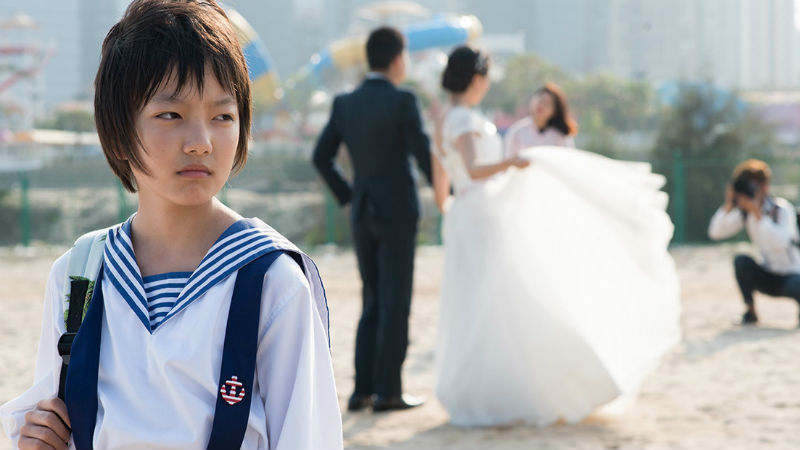QUICK SNAP: LIVE FROM TALLINN
In the early 1980s Beijing, sophomore college student Liang Zhengwen (Xian Li) once again meets Mao Zhen (Jessie Li), the young woman he has secretly fallen in love with. She was the girlfriend of his older brother who died when he accidentally drowned in a lake one night. This mysteriously elusive woman will be a haunting figure in his life. An unrequited love, she enters relationships with other men, while he engages in love triangles, and yet the pair remain emotionally inseparable.
Mei Feng’s adaptation of Yu Xiaodan’s novel, ’80s Lovers, is deliberately slow-paced, following the character of Zhengwen through much of the decade. The driving theme of the film is an echo of the sentiment that “no man is an island.” It positions the life story of the person as being defined by the people who come and go throughout his or her life – permanent and impermanent departures.
The bond the pair share is of someone they were both close to that has permanently left their lives. Zhen disappears, only to reappear into Zhengwen’s life. She frequently communicates with him by letter, her heartfelt words lending a deeper intimacy to their relationship. It’s a touching reflection on the emotions that bind two people together.
Sadly by the 75-minute mark, the film begins to feel laborious. Feng positions the young man as the main character, but the soul or the heart of the film is Zhen. By its conclusion we feel we have spent time observing the period in the life of a ghostlike figure, a spectre that never feels fully developed. He’s lost in the shadows cast by absent themes and ideas that compromise the depth of his character. Even Zhen, who in the earlier scenes has her layers peeled away to reveal a sad but captivating story, struggles to command our continued interest.
We feel the desire to want to be captivated by the characters, to feel more deeply for them, but the story does not put down the necessary roots. Love Song 1980 is in a state of perpetual cardiac arrest. Outside of the momentary pulses of promise, it continually flatlines. The scene in which Zhengwen’s brother’s body is found is viscerally unsettling, as Feng conveys the aching pain of loss in a way that’s rarely captured this profoundly in cinema. It’s brief, but it’s impactful.
I cannot speak directly to the merits of the adaptation, having no familiarity with Xiaodan’s novel. My suspicion however is that the film has the feel of a literary story, suited to that medium. Words on the page that can make the reader more implicit in the thoughts and feelings of the characters is lacking in the film, and where literature can hone in on details, the cinematic brushstrokes are broader. Throughout the film, detail is missing, or rather the premise and plot is in place, but it’s not threaded together. Yes, there are scenes that make us feel something for the characters, provoking momentary pulses of interest. However, without richer themes and ideas that are tenaciously explored, these are disparate and fail to satisfactorily coalesce.
Love Song 1980 has just had its European premiere at the 24th PÖFF Tallinn Black Nights Film Festival, where it’s showing in the Official Competition.









